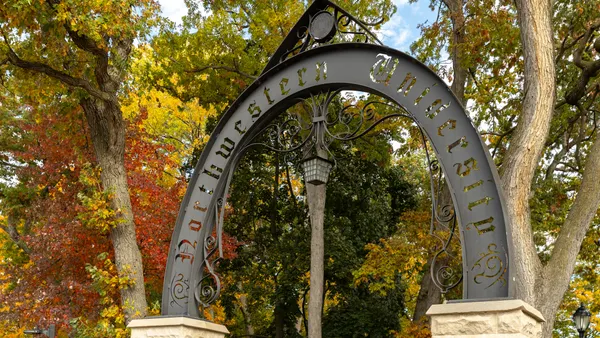Dive Brief:
- The U.S. Department of Education is ending funding to several grant programs for minority-serving institutions, calling them racially discriminatory because colleges must enroll certain shares of underrepresented students to qualify for the awards.
- In fiscal 2025, the department had been expected to award $350 million in grants to benefit institutions serving large shares of Alaska Native, Asian American, Black, Hispanic, Native American, Native Hawaiian and Pacific Islander students. The agency said on Wednesday it will redirect the funding to other programs "that advance Administration priorities."
- The announcement quickly drew criticism from college leaders, lawmakers and higher education organizations, who argued that cutting the grants would harm students and damage colleges that rely on the funding.
Dive Insight:
The cut grants have supported myriad initiatives at MSIs, such as purchasing laboratory equipment, improving buildings and classrooms, supporting student services like tutoring, and establishing endowment funds.
Eliminating the funding will irreparably harm students, Mildred García, chancellor of the California State University system, said in a Wednesday statement. She panned the move, noting that all but one of the CSU system’s 22 universities are Hispanic-serving institutions.
“Without this funding, students will lose the critical support they need to succeed in the classroom, complete their degrees on time, and achieve social mobility for themselves and their families,” García said.
Higher education leaders also said the funds benefit all students.
“The funds granted to HSIs have never supported only Latino students,” David Mendez, interim CEO of the Hispanic Association of Colleges and Universities, said in a statement on Wednesday. “These funds strengthen entire campuses, creating opportunities and resources that benefit all students, especially those pursuing STEM fields, as well as enhancing the communities where these colleges and universities are located.”
University of Hawaiʻi President Wendy Hensel voiced concerns specifically about the impact the move would have across the public 10-campus system.
“It will affect all of our students, the programs that support them and the dedicated staff who carry out this work,” Hensel said in a Wednesday statement.
However, the Education Department took issue with the eligibility requirements for colleges to receive grants.
For instance, to be eligible for grants for the Developing Hispanic-Serving Institutions program, colleges must have student bodies where at least 25% of learners are Hispanic. For grants under the Minority Science and Engineering Improvement program, which is meant to encourage underrepresented students to enter STEM fields, colleges must have student bodies where 50% of learners belong to underrepresented racial or ethnic minority groups.
“To further our commitment to ending discrimination in all forms across federally supported programs, the Department will no longer award Minority-Serving Institution grants that discriminate by restricting eligibility to institutions that meet government-mandated racial quotas,” U.S. Education Secretary Linda McMahon said in a statement on Wednesday.
McMahon said the department wants to work with Congress to “reenvision these programs to support institutions that serve underprepared or under-resourced students without relying on race quotas.”
The Education Department's decision Wednesday targets some of the very grants over which it is currently being sued by the state of Tennessee and Students for Fair Admissions, the anti-affirmative action group that successfully sued to end race-conscious admissions at colleges. In a lawsuit filed in June, the plaintiffs argued that grants for HSIs are discriminatory due to their eligibility requirements.
In a July memo, the U.S. Department of Justice said it would not defend the grant programs. Solicitor General D. John Sauer said the agency determined that they violated the constitutional right to equal protection under the law.
The Education Department said it will still disburse roughly $132 million in grant funding for fiscal year 2025 that Congress has mandated to be spent for MSIs. “The Department continues to consider the underlying legal issues associated with the mandatory funding mechanism in these programs,” the agency added.
The Education Department did not answer Higher Ed Dive’s questions Thursday but cited a Wednesday article from online news publication RealClearPolitics.
A senior administration official told RealClearPolitics that the changes would not impact historically Black colleges and universities. The federal designation of HBCU does not include any enrollment criteria. Instead, a college must have been established prior to 1964 and have a principal mission that “was, and is, the education of Black Americans,” according to federal statute.













